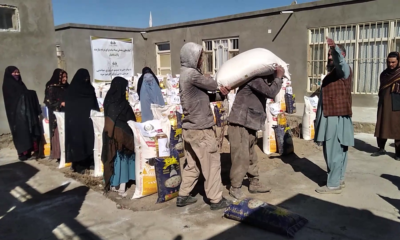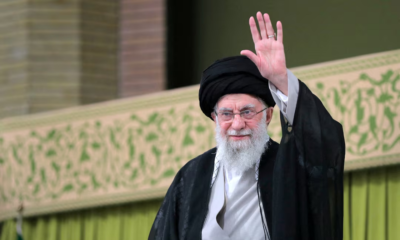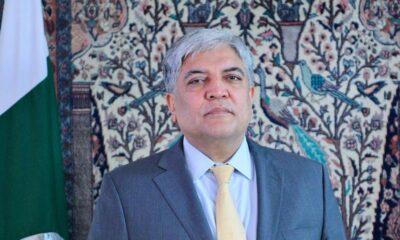Latest News
Blinken urges cooperation and unity in letter to Ghani
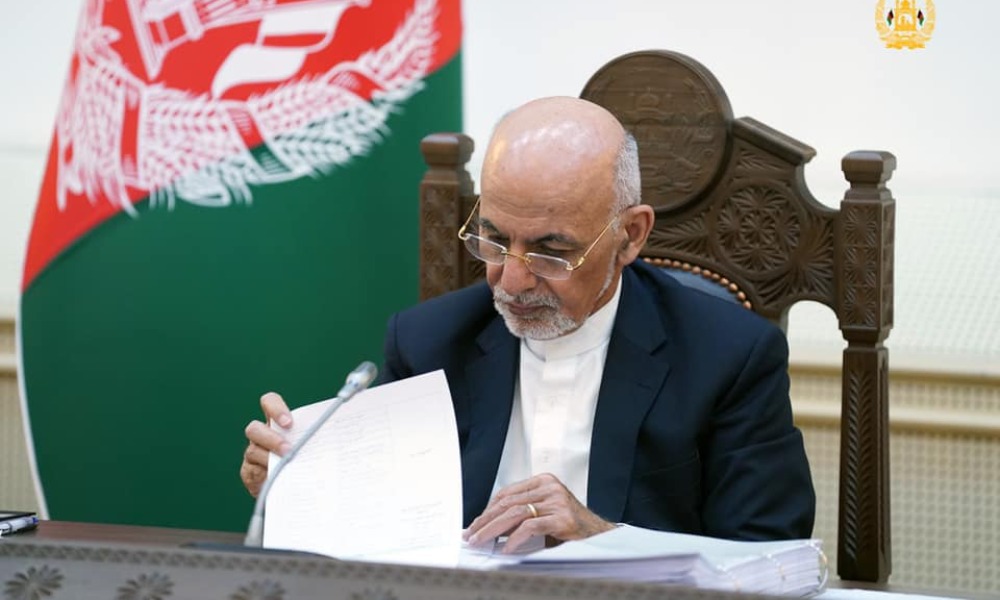
US Secretary of State Antony Blinken said he is concerned that a withdrawal of all American troops could impact the security situation in Afghanistan and lead to the Taliban making serious gains but also said the US does not intend to “dictate terms to the parties”.
In a letter to President Ashraf Ghani, of which Ariana News obtained a copy, Blinken said that proposals currently on the table reflect some of the ideas under consideration but “even with the continuation of financial assistance from the United States to your forces after an American military withdrawal, I am concerned that the security situation will worsen and that the Taliban could make rapid territorial gains.”
Blinken also called on Ghani to “positively consider” the proposal that US peace envoy Zalmay Khalilzad will share with him and that the Afghan president works with the Chairman of the High Council for National Reconciliation Abdullah Abdullah, former president Hamid Karzai and Adbul Rasul Sayyaf, an Afghan politician.
On this note, he said such a “group of four” would present a united front.
Blinken also stated that Washington intends to ask the United Nations to convene a meeting for Foreign Ministers and envoys from Russia, China, Pakistan, Iran, India and the US to discuss a unified approach to supporting peace in Afghanistan.
“It is my belief that these countries share an abiding common interest in a stable Afghanistan and must work together if we are to succeed.”
He said Khalilzad has been asked to prepare and share with Ghani and the Taliban leaders written proposals aimed at accelerating discussions on a negotiated settlement and ceasefire.
However, he pointed out that although Washington has “not yet completed our review of the way ahead, we have reached an initial conclusion that the best way to advance our shared interest is to do all we can to accelerate peace talks and to bring all parties into compliance with their commitments”.
He said the roadmap outlined for the peace process will enable the Republic and the Taliban to develop the foundational principles that will guide Afghanistan’s future constitutional and governing arrangements; a roadmap to a new and inclusive government; and the terms of a permanent and comprehensive ceasefire.
He said to Ghani: “I urge you to develop constructive positions on these written proposals to discuss with Ambassador Khalilzad.”
Blinken also stated that Washington will ask Turkey to host a senior-level meeting of both sides in the coming weeks to finalize a peace agreement.
“I urge you or your authoritative designees to join other representatives of the Islamic Republic in this meeting,” he said to Ghani.
Blinken did however say that Washington shares Ghani’s view that every effort must be made to reduce the violence in Afghanistan. He said these high levels of violence “are exacting an unacceptable toll on the Afghan people and deeply undermining efforts to achieve peace.”
“We have prepared a revised proposal for a 90-day Reduction-in-Violence, which is intended to prevent a Spring Offensive by the Taliban and to coincide with our diplomatic efforts to support a political settlement between the parties.
“I urge you to positively consider the proposal…” he said.
Blinken went on to state in his letter to Ghani that unity and inclusivity on the Republic’s side was essential for the “difficult work that lies ahead”.
“As you and your countrymen know all too well, disunity on the part of Afghan leaders proved disastrous in the early 1990s and must not be allowed to sabotage the opportunity before us,” he said in reference to the devastating civil war.
He said to Ghani that his “work together with Chairman Abdullah and your engagements with former President Karzai and professor Sayyaf show promise toward building a more united Afghan front for peace.
“I ask that you work together to further broaden this consultative group of four such that Afghans regard it as inclusive and credible; to build consensus on specific goals and objectives for a negotiation with the Taliban about governance, power-sharing and essential supporting principles; and to agree on overall tactics and public messaging that will demonstrate unity of effort and purpose.”
He then said: “We will strongly support all efforts taken to make this united front work.”
In conclusion, he told Ghani: “I am making this clear to you so that you understand the urgency of my tone regarding the collective work outlined in this letter.”
Transitional government proposed
The letter coincides with the emergence of Washington’s plan for a transitional government – which the Taliban confirmed Sunday.
In an interview with Ariana News, Taliban spokesman Mohammad Naeem said the plan was being considered by the Taliban’s leadership in Doha and that “a final decision has yet to be made in this regard.”
Naeem stated that the plan includes a transitional government, an Ankara, Turkey summit, and a ceasefire.
The Afghan government has also received US President Joe Biden’s proposed plan for the formation of a transitional government which would include the Taliban.
The plan consists of three key points; a principled guideline for the future of Afghanistan, a transitional government, and a permanent ceasefire.
According to a section of the plan that Ariana News read, a President of Afghanistan would be elected at the end of the transitional government period.
According to the plan, Islam will be considered the official religion of the country, and all Afghan citizens are granted immunity as “Afghanistan is a common home of all ethnicities and religions.”
A transitional government would consist of the following three main cornerstones:
The executive administration, including a president, deputies, ministers, and independent directorates
The legislature, which includes the Senate and Parliament, in which the Taliban will be represented and;
The judiciary, which would also include the Independent High Council of Islamic Jurisprudence and the Commission for Drafting a New Constitution.
According to the plan, the High Council of Islamic Jurisprudence would be composed of 15 members including seven Taliban members, seven members of the Afghan government, and a person would be chosen by the president of the government.
The council would be tasked to prepare Islamic guidance for social and cultural affairs.
Latest News
Bayat Foundation delivers Ramadan aid to needy families in Bamyan
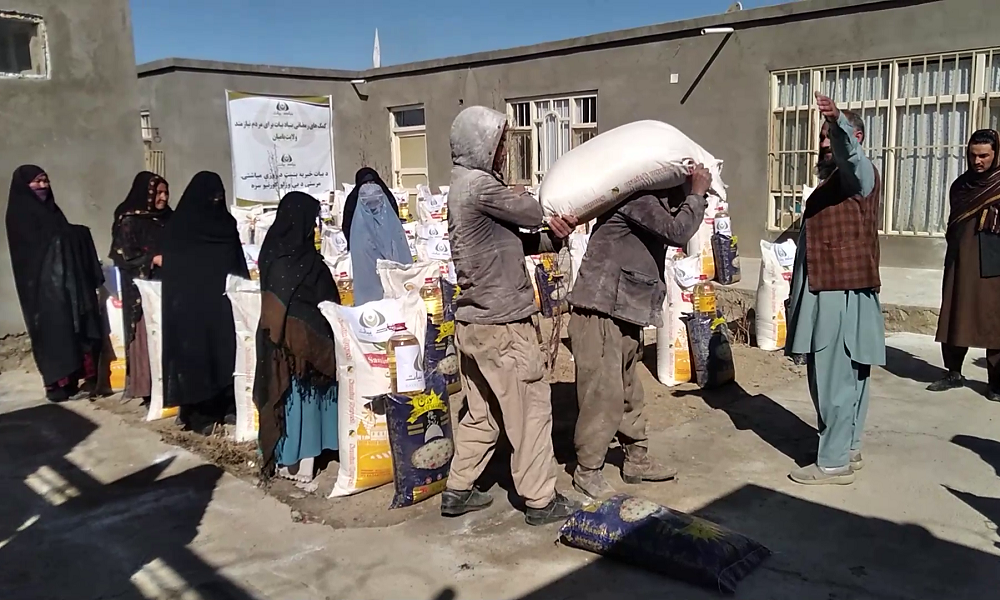
Bayat Foundation has announced it has distributed Ramadan aid packages to dozens of needy families in Bamyan province.
These aid packages include flour, oil, and rice, intending to assist those in need during the holy month of Ramadan.
Officials from the foundation stated that these donations will be extended to needy families in other provinces of the country by the end of Ramadan.
“As part of the Bayat Foundation’s ongoing assistance, today we are distributing Ramadan aid packages in Bamyan province. These packages contain flour, rice, and oil,” said Sayed Hakim, a representative of the Bayat Foundation in Bamyan.
Meanwhile, recipients of the aid have called on other charitable organizations to also rush to assist those in need during this month.
One recipient expressed gratitude: “Thanks to the Bayat Foundation for considering help for people like us.”
Another recipient added: “Thank you to the Bayat Foundation for helping us, and we hope that in the future, more aid will be provided to the poor people of Bamyan.”
In addition to supporting public welfare projects, healthcare, and those affected by natural disasters, the Bayat Foundation has been providing food and non-food aid to thousands of needy families in the center and provinces of Afghanistan during each Ramadan for nearly two decades.
Latest News
Pakistan once again urges IEA to act against militants
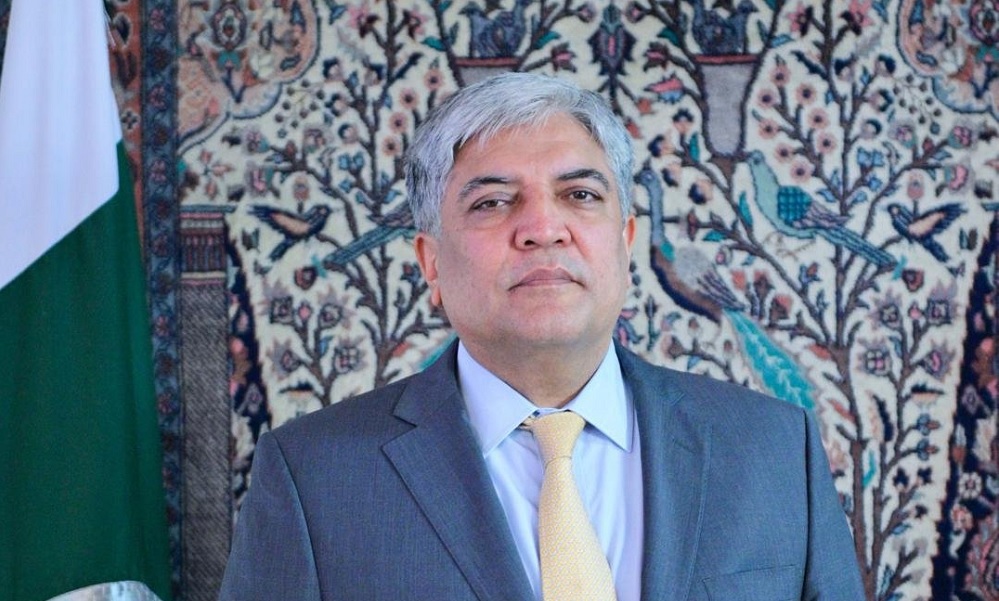
Pakistan’s foreign ministry on Thursday called on the Islamic Emirate of Afghanistan (IEA) to take visible and verifiable action against militants who, it said, enjoy sanctuaries inside Afghanistan.
“Terrorist threat against Pakistan from terrorist entities including TTP, BLA and ISKP is our foremost concern,” Shafqat Ali Khan, Pakistan’s foreign ministry spokesperson, said. “We continue to impress upon interim authorities to take visible and verifiable action against them, keeping in view their commitments given to the international community to dismantle terrorist infrastructure and groups from the Afghan soil.”
Regarding Afghan refugees, he confirmed that the deadline for their deportation remains unchanged. Pakistan had set March 31 as the deadline for Afghan Citizenship Card holders and illegal foreigners to leave Pakistan voluntarily.
On border issues, Shafaqat Ali Khan informed that the Torkham border was reopened on Wednesday, with pedestrian travel allowed from Friday. The border will remain open until April 15, and a permanent solution is being sought. There won’t be any construction by Afghan side inside the Pakistani territory, he said.
On militancy, he said that Pakistan is taking robust actions, but it is impossible to completely seal off the border with Afghanistan.
IEA has previously rejected Pakistan’s claims that terrorists have sanctuaries in Afghanistan.
Latest News
We need contemporary sciences more than ever nowadays: Education Minister
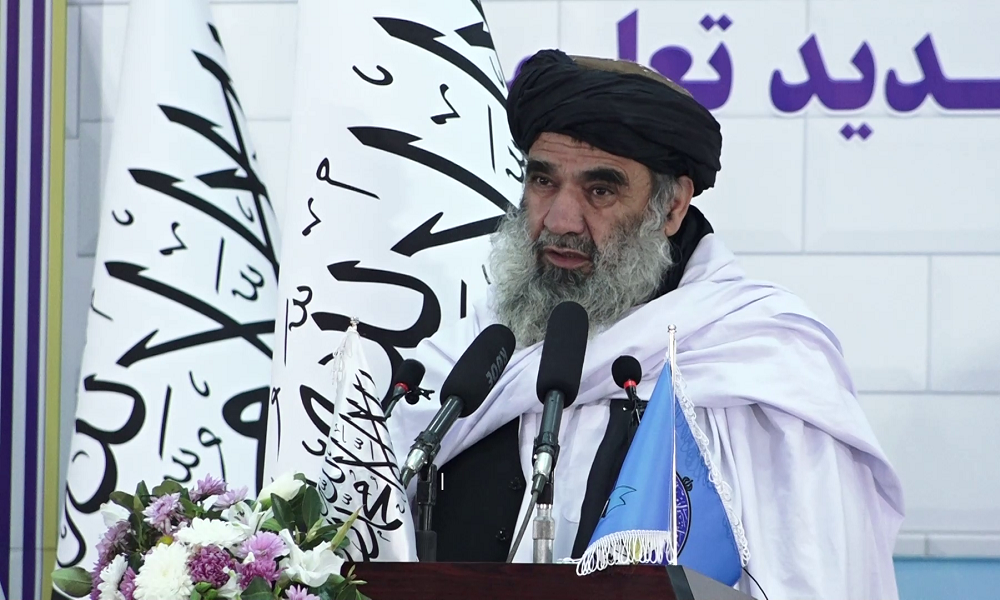
Acting Minister of Education Habibullah Agha says content contradicting religion and Afghan traditions will be removed from the curriculum, and that in addition to religious studies, the ministry is also focusing on modern sciences.
Marking the beginning of the 1404 academic year in Kabul, Habibullah Agha stressed that both religious and modern sciences are essential nowadays in Afghanistan.
He emphasized that the Islamic Emirate is committed to both fields of knowledge and urged people not to be deceived by negative propaganda.
“In this era, we have a great need to learn modern sciences. We must progress with these sciences and prepare ourselves to compete with the world,” said Agha.
He clarified that only through mastering modern sciences can the nation safeguard its people, government, health, and geography.
Meanwhile, Deputy Prime Minister for Administrative Affairs Abdul Salam Hanafi, who was also present at the event, reaffirmed the leadership’s commitment to fulfilling the Ministry of Education’s needs to establish a high-quality education system in Afghanistan.
Salam Hanafi stressed that the ministry must work to meet the country’s current educational demands.
He stated: “Enhancing teachers’ capabilities, addressing literacy issues, monitoring classroom activities, and improving the quality of both religious and public schools—these are the responsibilities of the Ministry of Education.”
Meanwhile, several government officials claimed that despite efforts by adversaries to tarnish the reputation of the IEA through a ‘cold war’, Afghanistan continues to make progress every day.
The 1404 academic year however began without reopening schools for girls above the sixth grade.
-

 World5 days ago
World5 days agoTrump and Putin expected to speak this week as US pushes for Russia-Ukraine ceasefire
-
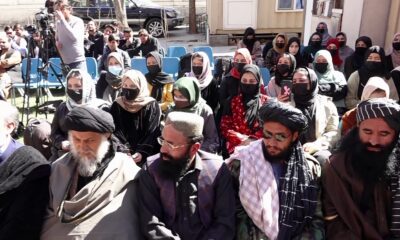
 Latest News4 days ago
Latest News4 days agoNational Journalists Day sparks reaction from Afghanistan’s media workers
-

 World3 days ago
World3 days agoPutin agrees to 30-day halt on energy facility strikes in Ukraine
-

 Sport3 days ago
Sport3 days agoIPL 2025 celebrates 18 years of immense success
-
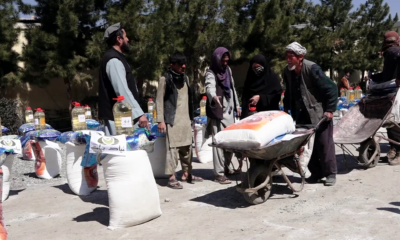
 Latest News3 days ago
Latest News3 days agoBayat Foundation helps needy families in Kabul during Ramadan
-

 Latest News5 days ago
Latest News5 days agoIEA urges neighboring countries to stop forced expulsions of Afghan refugees
-

 Latest News3 days ago
Latest News3 days agoTorkham crossing to reopen after 25-day shutdown
-

 Latest News4 days ago
Latest News4 days agoAfghan-Pakistan talks to reopen Torkham border ‘end on positive note’


